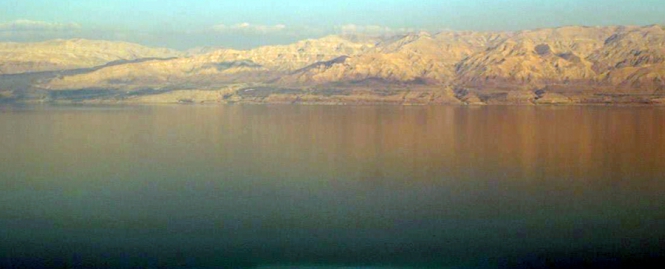Jordan Water Project

At the heart of the Middle East, Jordan is one of the ten poorest countries in the world in terms of freshwater resource availability. The region is expected to experience temperature increases of about 2.5 degrees Celsius by mid-century with longer dry periods. Jordan is subject to water conflicts and demand increases due to the influx of Syrian refugees. On top of that, water management in Jordan is marked by institutional dysfunction. We have assembled an interdisciplinary team of international experts from the U.S., Canada, Germany, the U.K. and Jordan to explore how reform of Jordan’s institutional water usage rules can improve freshwater system performance.
In arid regions throughout the world, water system security is at a tipping point due to a confluence of drivers that include severely limited water supplies, rapid population growth and demographic shifts, climate change and variability, trans-boundary competition for shared freshwater resources, and institutional dysfunction. The overarching challenge is to sustain the human-natural system in the presence of rapid environmental and socioeconomic change.
The Jordan Water Project (JWP) is an international interdisciplinary research effort aimed at developing a new approach to evaluate policies to enhance sustainability of freshwater resource systems. It is supported by a consortium of G-8 nation science agencies through the Belmont Forum.
This effort focuses on development of an integrated framework to evaluate water policy interventions in water-stressed countries using Jordan as a model system. Jordan is representative of many arid regions where future natural and social changes set the stage for nationwide water supply failures. Existing water resources models ignore critical interactions between hydrologic and socioeconomic components, resulting in a lack of holistic analysis needed to make long-term policy decisions.
Our interdisciplinary team is developing a quantitative policy-evaluation tool to explore ways to enhance the sustainability of freshwater systems through such innovations as optimized allocation procedures, institutional re-structuring, subsidies/tariffs, water-lease markets, and trans-boundary institutions. We are constructing a modular, agent-based hydro-economic model in which each module captures scientific and local knowledge from a unique discipline synthesizing hydrologic, agronomic, and socioeconomic analysis into a coherent analytical framework. The modules will be linked through feedbacks among system components. The policy-evaluation model will combine simulation of natural phenomena including groundwater-surface water flow, crop yield, and soil / water salinity) with human decision-making at the institutional and user levels (water usage, regulation, allocation, trans-boundary water, and trade. We plan to evaluate a wide range of policy interventions based on a set of quantitative economic and environmental metrics.
In addition to developing a new tool for water policy analysis, JWP aims to identify innovative policy solutions for a water system that has exhausted traditional supply sources and is operating at the vulnerable edge. Our analysis of risks and benefits associated with policy solutions will be assessed, and management options communicated to stakeholders who will be actively solicited for input. The project will further set the groundwork for deploying the integrated framework to other water stressed regions throughout the globe.